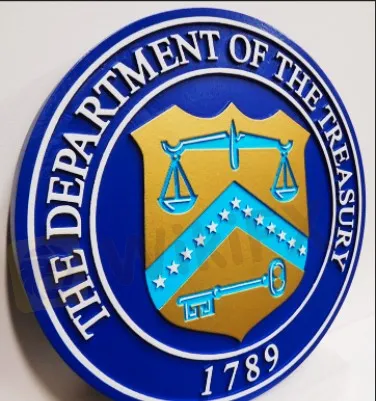简体中文
繁體中文
English
Pусский
日本語
ภาษาไทย
Tiếng Việt
Bahasa Indonesia
Español
हिन्दी
Filippiiniläinen
Français
Deutsch
Português
Türkçe
한국어
العربية
Billionaires’ Tax ‘Is a Bad Idea,’ Ex-Treasury Chief Summers Says
Abstract:Summers told Bloomberg Television’s “Wall Street Week
Former Treasury Secretary Lawrence Summers urged the Biden administration to focus on passing legislation to implement a historic global corporate-tax deal, while criticizing the White Houses call for a so-called billionaire tax.
“It is absolutely essential -- the single most important priority for tax policy going forward is that we do what is necessary to move forward the global corporate-tax agreement,” Summers told Bloomberg Televisions “Wall Street Week” with David Westin on Friday.
Summers lauded Janet Yellen, who holds the Treasury chief job he had more than two decades ago, for her “historic” economic diplomacy last year in securing a 15% global minimum corporate tax. The deal among almost 140 countries also would resolve disputes over the taxation of cross-border commerce, but needs validation by Congress.
President Joe Bidens 2023 federal budget proposal, released on Monday, includes implementation of the corporate tax deal. Summers, a paid contributor to Bloomberg Television and Harvard University professor, criticized a plank of the individual tax measures also in the budget.
“The billionaires‘ tax is a bad idea whose time will never come,” Summers said of the measure, which would tax the appreciation of financial and business assets owned by people worth more than $100 million. “It’s mislabeled to give it a kind of populist appeal.”
‘Comical’ Forecasts
House lawmakers didn‘t include a similar measure in legislation last year to enact Biden’s long-term economic agenda.
“The general idea of taxing capital gains when people don‘t have those capital gains -- they haven’t sold the assets -- is not a realistic one,” Summers said.
The former Treasury secretary also blasted the long-term interest-rate forecasts embedded in Bidens budget.
Three-month Treasury bill rates were penciled in at 0.2% for this year -- less than half their 0.5% current level. Ten-year Treasury yields were forecast at 2.1%; theyre now about 2.36%. Over the coming decade, 10-year yields were projected just above 3%.
The interest-rate forecasts “look comical today,” Summers said. Using more realistic forecasts now would likely add 5% to the federal debt to gross domestic product ratio, Summers said.
Summers also predicted that in future the government will need to use fiscal-policy tightening in order to help bring down decades-high inflation, alongside Federal Reserve tightening.
“We‘re moving towards a moment when we’re going to have to start thinking about fiscal policy as well as monetary policy as an anti-inflationary tool,” he said.
With regard to Biden‘s decision this week to release roughly a million barrels of oil a day from the government’s strategic reserves for six months, Summers said a better way of going about it would have been a simultaneous sale in the spot market and purchase in the forward market.
The cheaper cost in the forward market means the administration could have made money on the deal, while replenishing the strategic reserve simultaneously, Summers said.

Disclaimer:
The views in this article only represent the author's personal views, and do not constitute investment advice on this platform. This platform does not guarantee the accuracy, completeness and timeliness of the information in the article, and will not be liable for any loss caused by the use of or reliance on the information in the article.
Read more

FED meeting minutes strongly hint at a rate cut in September; US dollar index falls to new low this year!
The U.S. Bureau of Labor Statistics revised down the employment growth in the year ending in March by 818,000, an average monthly decrease of about 68,000, the largest downward revision since 2009. The substantial downward revision of employment data re-emphasized the severity and necessity of the U.S. employment problem, paving the way for a rate hike in September. Bearish for the U.S. dollar.

What new signals does the Federal Reserve have? FED Governor Michelle Bowman reiterates the risk of inflation!
Fed Governor Bowman: There are upside risks to inflation, the labor market continues to strengthen, and a cautious attitude will be maintained at the September meeting. Boston Fed President Collins: If the data is as expected, it would be appropriate to start easing policy "soon". Inflationary pressure will slow down the pace of U.S. interest rate cuts, which will be bullish for the dollar.

GEMFOREX - weekly analysis
The week ahead: Traders on the backfoot ahead of a quiet week

Twin Scam Alert: Broker Capitals is a New Domain of Finex Stock
This week, the Italy financial regulator CONSOB issued a warning against an unlicensed broker named Broker Capitals. When we clicked on Broker Capitals' website, its logo, trade name, and design seemed familiar to us.
WikiFX Broker
Latest News
Think Before You Click: Malaysian Loses RM240,000 to Investment Scam
Ghana Trader Jailed for $300K Forex and Crypto Scam
What Are The Top 5 Cryptocurrency Predictions For 2025?
Lawsuit Filed Against PayPal Over Honey’s Affiliate Fraud
XRP Price Prediction for 2025: Will It Hit $4.30 or More?
Exnova Scam Alert: Account Blocked, Funds Stolen, and Zero Accountability
T3 Financial Crime Unit Freezes $100M in USDT
BlackRock Bitcoin ETF Outflows Hit $332M in Single Day
Terra Founder Do Kwon Denies Fraud Allegations in U.S. Court
Dr. Sandip Ghosh, Ex-RG Kar Principal, Involved in Multi-Crore Scam
Currency Calculator






